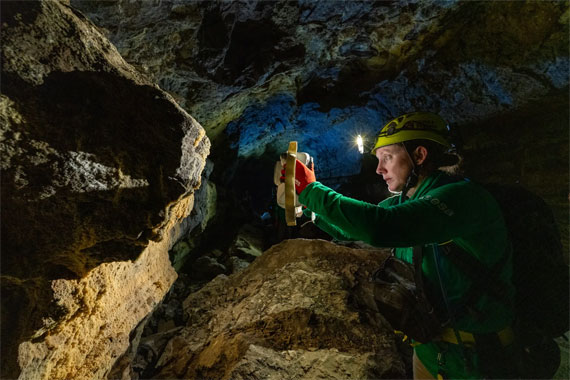In an exciting development for space exploration and photography, NASA has partnered with Nikon Inc. to create a groundbreaking camera designed specifically for the lunar environment. This collaboration, formalized through a Space Act Agreement, signifies a giant leap in the technological advancements used in space, particularly for the upcoming Artemis missions aimed at exploring the Moon’s South Pole.

Image from European Space Agency. NASA astronaut Jessica Wittner uses an early design of the Artemis lunar camera to take photos during planetary geological field training in Lanzarote, Spain.
The Artemis missions represent NASA’s ambitious plan to return humans to the Moon and establish a sustainable presence there, laying the groundwork for future Mars exploration. The introduction of the Handheld Universal Lunar Camera (HULC) marks a significant milestone in this journey, ensuring that astronauts can capture high-quality visual data from the lunar surface.
This camera, a highly modified version of Nikon’s Z 9 model, is being developed to withstand the Moon’s extreme conditions, including drastic temperature variations and challenging lighting environments. The collaboration leverages Nikon’s expertise in camera engineering and NASA’s experience in space technology, combining their strengths to produce a device that can operate effectively in space.
The HULC is not just an ordinary camera; it embodies a series of modifications to suit the lunar environment. It will feature a thermal blanket for protection against lunar dust and temperature extremes, a custom grip with enlarged buttons for ease of use by astronauts in bulky gloves, and enhanced electrical components to combat radiation issues. Moreover, this will be the first mirrorless camera to be used on the lunar surface, equipped with advanced imaging technology to excel in low-light conditions.
Before its lunar debut, the HULC will undergo rigorous testing at the International Space Station, demonstrating its capabilities in a space setting. This step ensures that the camera is well-prepared for its critical role in the Artemis missions, where it will capture images and videos, aiding scientific research and providing invaluable insights into the Moon’s geology and environment.
The development of the HULC also represents a continuation of NASA’s legacy of using specialized cameras in space. From the cameras of the Apollo era to the modern imaging devices on the International Space Station, NASA has consistently relied on photographic technology to document and study space. The HULC is set to be the latest addition to this illustrious lineage, equipped with a viewfinder and video capabilities that surpass its predecessors.
As NASA prepares for the upcoming Artemis missions, the HULC will be an essential tool in the astronauts’ toolkit, enabling them to capture the Moon’s mystique and its scientific treasures. This collaboration between NASA and Nikon underscores the importance of technological innovation in advancing our understanding of space and strengthening our capabilities for future exploration.
Like This Article?
Don't Miss The Next One!
Join over 100,000 photographers of all experience levels who receive our free photography tips and articles to stay current:






Leave a Reply